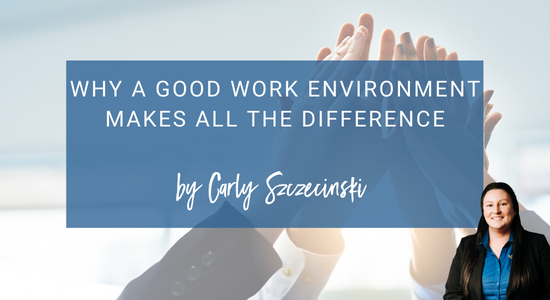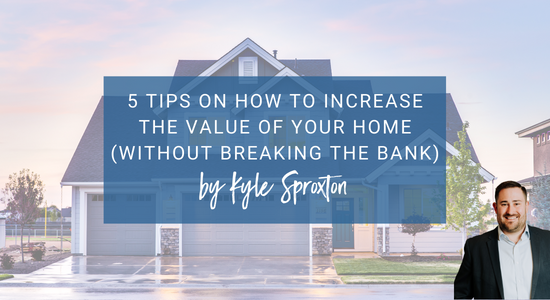In a market that’s extremely busy, one of the constant questions I get asked is what does under contract mean when displayed online on internet sites such as realestate.com.au. Is the property still available or has it sold? I can’t speak for all agencies and their procedures because some of them continue to display properties for sale even though they are sold, however when we mark properties under contract it means that there has been an accepted offer on the property. Now this may mean that conditions are still to be met (i.e., awaiting finance, building inspection or timberpest report) or it could also be that the property is unconditional (this means all conditions have been satisfied and the transaction is progressing to settlement).
Sometimes properties are displayed under offer for a long period of time and buyers may wonder why. This is generally due to long finance periods, extensions for finance or even delayed or longer settlements which is more common now that sellers need longer to find somewhere to go, settlement agents require a good amount of time to settle (especially when banks are involved) and that broker and bank application processes have blown out considerably.
Now sometimes properties are displayed under contract as soon as they hit online. I hear you say, how can this happen when it’s only just gone online? Well the answer to that question is that the buyer has been introduced to the property between when the listing documentation was signed, and when all the marketing was completed and displayed online. Of course the next question to follow is, why didn’t I get an opportunity as this can cause frustrations to buyers looking in the market especially when it’s a busy as it is currently. Agents work for the seller so it comes back to the owners instructions. Some sellers will get an offer too good to refuse, others may want to try and attract even more buyers. It really depends on the sellers motivation and what their plans are.
So what do you need to do so you don’t miss out and that you’re informed ahead of the game? It’s my advice to get yourself onto a registered database. A good agent will have this and be able to advise of possible opportunities that may fit your needs. Provide them with a list of your requirements and budget and make sure you have everything in order to be able to act. It’s not uncommon in the current marketplace for buyers to make an offer on the property sight unseen especially from east coast buyers which is becoming more and more so this is another important reason to have all your ducks in a row so you can act quickly.
Happy house hunting and know, with a bit more knowledge about what under offer/under contract means it should assist your searching and time efficiency.
By Jeremy Stewart – Director

As I sit pondering this question and the answer to it, I find myself thinking about the good experiences I have had. I also flip my thinking to the other side of the equation and the not-so-great ones. Either way experiences could be real estate orientated, going to a restaurant for dinner, taking a trip or holiday somewhere, going to the shops or attending a sporting event. It’s interesting that in general terms your experience is shaped by something much more than price and money. Yes, that plays some part, however there is something bigger and it’s the people and how they engage and treat you. Behavioural experts will tell you there are different personality types. Some are more outgoing and vocal, some are quiet and reserved, some are driven differently but personality traits aside, I question as a society are we getting better with delivering the customer experience, are we settling for less, are people expecting a lot more or is it that people’s values have changed and that is the reason not everyone has a great customer experience?
In the last 12 months we as a business have focused hard on values, where the staff have had a great amount of input into defining what Merrifield Real Estate is all about. I’m not in the habit of making big statements and putting them on office buildings or billboards. Those that really know us, know what matters the most. What I am really proud of is the time we have put in and the investment in our staff which empowers us to provide a positive customer experience. Yes, everyone is busy, and most businesses don’t have time to take a lot of time out of their day but a great mentor of mine reminds me all the time, that if you don’t have time to train then how can people learn and get better. I’ve been lucky to have blessed to have a brilliant facilitator to help formulate these values and an external consultant that’s added huge value in helping deliver what we’re aiming to achieve.
While training to get better is the best way to improve, the truth is we don’t always get it right. No one is prefect and sometimes there are things outside of our control. In real estate all kind of things happen that can be last minute. For example, you could have a removalist booked on the day of settlement and have a delayed settlement (some advice don’t wait til settlement day to book a removalist) , it could be a bank losing a title, a delay in obtaining finance by the due date, not being able to inspect a property when you want because of a tenant. The list goes on and generally we are the middle person involved. Some things are in our control, others aren’t.
While I don’t pretend to understand some people’s thinking and logic, I will say that by showing understanding, patience & respect for our fellow human being might actually go a long way to getting what you require and having a good customer experience along the way. And isn’t that all we want! To have a great experience and be treated kindly.
By Jeremy Stewart – Director

Property Managers…
A job title that carries a huge amount of responsibility and weight, but more often than not under appreciated.
Property Management laws in Western Australia are the strictest within Australia (With potentially more proposed); the Residential Tenancies Act of WA is so involved we are constantly learning each and every day because we simply cannot know it all and need to keep up. On a day to day basis Property Managers are subjected to different scenarios and/or issues which require a high level of concentration, knowledge and dedication to the job at hand to ensure everything is correctly handled in accordance with the guidelines set out before us. And from time to time we come under fire for following the rules and can sometimes be seen as being heartless simply for doing our job.
The scary world of property management is certainly not for everyone, which can be witnessed by the high level of burnout within our industry and the large amount of new property managers entering the industry then leaving within their first 12 months, as they realise it is not the career path for them. Tenants and Owners see this as an inconvenience and become irritated at having to deal with different people all the time, not realizing that it is because of the jobs requirements that there is such high turnover of staff. It can be a thankless job at times.
You need a thick skin in this challenging role when we are dealing with peoples most primary need “a home” as well as peoples secondary need “money”, both of which can bring out the best and the worst in people.
We joke in this industry that we wear a number of different hats in our day job from property managers to relationship counsellors, advisors, maintenance people, plumbers, electricians, roofers, building inspectors (obviously not doing the work but trying to explain and prove issues need to be repaired), cleaners, pet handlers and a huge array of other roles. When in fact we are simply a bunch of somewhat crazy people coming to work each day to help provide our community with a roof over their head and hopefully money in the pockets of the investors providing the homes to lease. We push to be the best, offer the best service and do everything we can to keep everyone happy and the wheel turning.
Why then, do property managers receive so much criticism from those we serve?
Admittedly we can’t keep everyone happy 100% of the time. Some Landlords don’t want to complete those repairs or refuse to respond to our calls and emails to get that heater working before winter. Tenants don’t always do the right thing and may be late in rent payments, damage the property or not be ready for that inspection which results in a follow up inspection needing to be done. We are the mediator between the Tenant and the Owner and the enforcer of the rules, and for this, we are often the ones caught in the middle. For some this becomes too much and they leave the industry, or they just brush it off for someone else to deal with. For others such as myself, it pushes us to strive for a better world in which we work and to try and change peoples perspective of the infamous Property Manager. Being in real estate for the past 18 years I have seen so much change within our industry however our treatment has stayed consistent the whole way through.
While landlords get extremely good value for us to do this task no one else wants, we certainly don’t get to go on a Christmas holiday with tenant’s bond funds contrary to everyone’s beliefs. We go home and cry somedays because one of our favourite tenants has been diagnosed with cancer or we’ve stumbled across a death in one of our rentals. We clean properties ourselves because it isn’t up to our own standard and can’t bear to allow a tenant to move into a filthy property. We sympathize with our landlords that can’t afford for the property to be vacant but also need to sell and their tenant isn’t happy. We push our trades to give the best and cheapest service possible so the Owner isn’t out of pocket before their mortgage payment is due. We are required to terminate a tenancy on a family who can’t afford to pay the rent because they’ve lost their job and have no where else to go. We are often seen as the cause of the problem when we are merely the message giver.
When a job requires us to deal with such massive degrees of difficulty, we should be given the utmost respect for doing what we do however this sadly isn’t the case.
It is certainly not all bad though; we have massive highs of winning new business and beating our competitors to that awesome new property to manage, we create amazing relationships with our Tenants and Owners which often continue well on past their stay with our agency. We manage properties for years for some clients, meaning we become a part of their lives and they a part of ours. We have a huge level of appreciation to our trades people who quite regularly give up their weekends and nights to fix those hot water systems not working and always greet us with a smile even at 4.55pm on a Friday when all they want is that ice cold beer. Not to mention the amazing and equally crazy team that do this by our side each and every day and keep us all coming back for more. And sometimes and I mean sometimes we receive a heart felt gift of thanks for helping a tenant or managing a property for an Owner.
So the next time you are speaking with your Property Manager, just remember that we are only doing our job. We are not trying to make your life difficult, we don’t revel in the so called power trip of advising what needs to be done after you’ve vacated or that your water bill or rent needs to be paid. We aren’t trying to force you to use all your money and completely renovate your property. We are simply coming to work each day to manage the relationship between two people to reach a happy and mutual outcome. A smile and a thank you goes a long way in our world and costs nothing.
Written by Lisa Dunham
Senior Property Manager

All the media and talk at the moment is centred around the housing crisis in particular the massive shortage of rentals. While all the talk is fine and most certainly needed, action is what’s required, and action is what has been lacking for some time. As a result of this we are in a situation where we are being reactive rather than proactive and therefore there is no quick solution because everyone is so busy scrambling with all the chaos. Being that I work in the industry this has been coming for some time, but the relevant authorities have fallen asleep at the wheel and are madly trying to conduct reports for solutions as we speak.
Some of these solutions have been right under their nose for years, others need more work and will take time. The reality is we need more houses. With over 450 people on social housing waiting lists in The Great Southern and over 16,000 statewide this is an issue that will not being going away anytime soon. For more social houses you either need to purchase established in a hot market (is this the best use of taxpayer’s money?) or buy land and build. Builders I talk with have advised me there is a 2 year wait to build a house. This is due mainly to the government grants program in mid-2020 where the market got flooded with buyers wanting to purchase land and build. The WA Housing Strategy for 2020 – 2030 report only factors in to build houses in WA that’s not going to make a dent into providing enough. That’s not going to cut the mustard by any stretch of the imagination. So, tell those people looking for a house that there is nowhere to go for a few years! And as I write this blog there are only 44 properties for lease in Albany, 10 in Broome, 2 in Esperance and 23 in Busselton. This is a WA issue that’s not going away any time soon.
If you want investors to provide more housing, then you need to encourage that. Amendments to the Residential Tenancy Act (RTA) continue to discourage them from buying and with more proposed changes that give landlords less rights, why would they want to buy and supply housing. I’d hate to be a landlord in Victoria with the tenancy law changes there recently. Without investors you don’t have a supply of housing in the first place. It will do tenant advocates to remember this when pushing for changes to the RTA because we need more supply not less of housing. Over 80% of Australian investors are mums and dads owning only 1 investment property. And government want to make it harder for them with more proposed changes to the RTA! It’s the majority of mum and dad investors who are generally borrowing and taking all the risk. While I do agree that there are some landlords that take the mickey, in my experience this is few and far between. Yes, come down on them if they do the wrong thing but you need to encourage investors to provide more houses.
Another barrier for investors is stamp duty. This is a rip off and change is required. Real Estate Institute of WA (REIWA) has been lobbying the state government for ages now that at least a 75% reduction is required. We have one of the highest stamp duty rates in the country. I guess there must be a build-up of wax in the ears of these people that are meant to be listening, because the message simply isn’t getting through. At least NSW is trying something different with a different kind of property tax that at least allows some flexibility. It still may not be prefect but at least it’s something different. WA on the other hand is in la la land. If it’s serious about providing more housing it will do something now not wait for a budget, half year review or whatever other excuse they come up with.
An impressive read if you want to find more solutions is the Unlocking Housing Report. It’s a 50 page report that tackles all the important housing issues. More importantly it provides solutions which can be acted upon. Some I agree with and others I don’t. Take a read for yourself – the link is below. One thing is for sure, less talk more action is required before it gets even worse.
By Jeremy Stewart -Director of Merrifield Real Estate

One of the things I enjoy the most about working as a real estate agent is that I get to meet so many interesting people and I am always learning life lessons from my shared experiences with them.
Often when someone is selling or buying a property they are going through some very significant changes or challenges in their lives at the same time. While sometimes it is a life event to enjoy or celebrate, such as buying a first home, moving in with a partner, starting a family, change in career, retirement, travel, or an unexpected windfall, other times it can be a really tough time that the people concerned are going through.
I’ve worked with many clients who have called on me to help them with a property transaction that has come about due to the breakdown of a relationship, serious illness or incapacitation, loss of a job, death of a loved one or financial hardship, just to give some examples. People in these types of situations are experiencing major events that have lead them to change their path in life, often through no fault of their own. While it can be confronting and uncomfortable listening to these client’s stories, I am often surprised by the resilience many of these people show and how they manage to carry on. I truly admire the grit and courage they demonstrate as I know it must be so difficult for them to see the light at the end of the tunnel in such dark times.
In a world that seems to like to give glory and status to so many talentless ‘celebrities’, I am reminded in my work that the ‘real’ people I deal with who are struggling with adversity and pulling through are the true heroes in this world, yet they go about their lives without any accolades or special treatment.
The interactions I have with my clients are often very grounding and leave me feeling grateful for the opportunities that I have in front of me. I frequently would not have had the chance to meet these individuals if it wasn’t through my work and I feel very privileged to have such insight in to their lives.
I read a quote recently that said “I’m not interested in whether you’ve stood with the great. I’m interested in whether you’ve sat with the broken”. This couple of sentences truly resonate with me as I often find myself being drawn to people who could be described as “the broken”. It certainly goes a long way to explain why my work as a real estate agent is often very humbling and so satisfying.
People often assume that my work in the real estate industry is all about the properties that I appraise, list and sell. For me, it’s actually all about the people that I get to meet and interact with while working with properties, many of whom are a true inspiration to me and I thank for reminding me of what is truly important in life.
By Lee Stonell – Sales Consultant

One third of the average person’s life is spent at work which is why its so important to enjoy what you do and who you do it with. I recently clicked over 10 years working at Merrifield’s and I can honestly say that I’ve never loathed coming to work. I know I work in a great environment with a great bunch of people but I’ve been thinking about what it actually is that makes a great work environment.
Firstly, I believe working with a group of people that have a sense of humour is number one. Real Estate is a stressful industry because conflict is unavoidable. We generally wear the brunt of that conflict because we are the conduit between a seller and buyer or a landlord and tenant, we don’t make the decision’s but we answer for them. As well as dealing with conflict we have a very cyclical workload meaning it can be all or nothing depending on the marketplace. It always seems like the universal likes to bunch up all our issues and increase our workload at the same time to test our resilience. Stress is inevitable in a busy, fast paced profession which is why a sense of humour is so important to me as a good laugh can lightening your mood and relieve anxiety levels. Not surprisingly, there is always something to laugh at around here with so many big personalities in one place.
The second most important aspect of a great work environment is knowing the people you work with. The people I sit next to probably know more about my day-to-day life than my closest friends or family. When you sit next to someone for 38 hours a week that’s a lot of time together and a lot of conversations about what you’re cooking for tea that night. Spending the time getting to know your co-workers is so important for a happy work life because when you understand what’s going on in someone’s life it’s so much easier to get along. For me personally I have made some great friends from workplaces which have been maintained after the employment finishes.
Flexibility is the third thing I believe makes a great work environment. I personally don’t like following the same routine every day, I like that some days are in the office, some days are out at properties and I work from home on others. Having a work place that allows you to give and take makes such a difference. We have had staff members come from other offices who had never seen a school assembly or sports carnival.. Simple actions like half an hour lunch break to see your child receive a merit certificate doesn’t cost a thing and makes a big difference to home life. For me I don’t have children but I live away from my family so I spend a lot of time on road to Corrigin or Perth. I always leave just after lunch because that’s what is safe for me, I know many people who aren’t afforded this flexibility.
The fourth element is working with people that want to be there. I’ve accepted that people come and go from workplaces and its nearly impossible to get the right 20 people under the roof at the same time. For me there is so much difference between an employee who really values their job compared to someone who sees their position as a steppingstone to something else. In my experience when you get a group of people together who really value their job, creativity, efficiency and enjoyability all increase. People who are committed to their workplace or position generally have a drive to continually improve that workplace and strive to increase service standards.
Finally the last element I consider to be imperative to a great work environment is employing people with similar values to the company. A few years ago, Merrifield stopped employing people based on their experience and starting employing people who fit with our values and attitude. This has made a seriously big difference in our workplace and whilst we may have overlooked applicants who have had great experience it’s been a positive change.
Those are my thoughts on what makes a great work environment but there is also an individual element to enjoying your workplace. As a person you can choose to be positive and enjoy your work place or you can choose to take a negative view on everything. I’ve learnt that sometimes people are so trained to see negatives in situations they don’t even know they are doing it. Like everyone I’ve had things not go my way at work but I choose to see the bigger picture that a few negatives don’t out way all the positives.
Have I missed something that makes a ‘great work environment’? I would love to hear your thoughts?
By Carly Szczecinski – Commercial Manager

It’s finally nice to see that regional areas in Australia are starting to get some positive attention in relation to property commentary. While especially east coast commentators focus all on the big cities like Melbourne and Sydney all the time as that’s where the majority of people live. What is now starting to happen is more attention is being put into regional areas and in particular, major regional towns that have a nice lifestyle, temperate climate, good education opportunities, solid medical facilities and potential job opportunities. Since COVID, people are re-accessing where they want to live, where is the safest place to be, that they can work remotely and that family is their number 1 priority.
Data shows that people are moving out of major cities and into regional areas. (Australian Bureau of Statistics shows on average out of all major cities in the last ¼ there was 10,500 people decline). The knock on effect of this is, that residential sales have certainly increased to buyers from outside local regions with a lot from metro areas, rentals are in strong demand across the state with many regional centres in WA experiencing rent vacancies of under 1% and that some people moving are starting up businesses or buying established businesses, so we are seeing improvement in the commercial sector which was struggling well before COVID.
This is why Albany is currently experiencing a large demand from buyers outside of the region to move here due to the above. The majority of people moving will need work. I watch seek.com.au regularly and have noticed for the best part of the last 8 months there has been between 80 – 120 jobs advertised in the Great Southern per week. These jobs are in all different industries so don’t think for one minute that it’s just retail or hospitality entry level jobs. So work isn’t an issue. Yes we do have an employment problem and that’s a lack of people wanting to work. This is backed up by a client that I spoke to this week that requires another 40 workers and they already employ approx. 460 people. And that’s just one example. But that’s another blog for another day.
So with plenty of work, people moving here for the lifestyle, being able to experience outdoors whether that be a hike, walk, ride or the relaxation of visiting a winery, tourist attraction, café etc. it’s just some of the reasons why regional is now back on the radar. And I’m sure the other 60,000 people plus that call Great Southern home will agree! Regional really is the best and it is now finally getting the recognition it deserves. Yes I’m a bit biased because I’ve lived here for a long time but why not come and see for yourself and you’ll get to see what I’m talking about.
By Jeremy Stewart

It’s been a crazy year that’s for sure and nothing like we’ve ever seen before. How long will it continue? Goodness knows but what I do know is that it has thrown a spanner in the works for sure. And when things are uncertain people tend to go a little nuts. What we are seeing is people with frustration taking it out on people just doing their job. I’ve spoken to a variety of business owners in the last month and it’s not just our industry. It’s every industry.
So let’s take the real estate industry. Currently there is a tight rental market in Albany and across WA with vacancy rates below 1%. And what we are seeing are some people are panicking and desperate and this is because of the decisions they make. Buyers are trying to get into houses sooner, organise removalists for settlement and don’t have contingencies if there is a delay or sign a legally binding contract then have all these additional expectations outside of the contract because of the decisions they make. Owners are pushing trades people to get things done even though there is a current shortage of trades people, builders are being asked by buyers to start homes quicker because of decisions they make. It’s time people start taking responsibility for their own decisions.
Where I am going with this is that you are responsible for your own actions and decisions and that it’s time people start to think about others involved in the process. The people you are working with are just trying to do their job, make a living, putting a roof over their head for their families. We have no idea what is going on in that person’s life ( it could be anything like a family health issue, financial pressure, child being bullied at school the list goes on ) and if this Covid period has taught us anything is that we need to be looking after each other even more. People’s mental health is more important than ever before.
So next time you’re frustrated, stuck, angry and annoyed,take a deep breath, take a minute to think and consider others. Taking it out on the person you’re speaking with isn’t the answer. In fact it’s probably going to do the opposite and won’t get you very far at all. Time is precious and what you think is a big deal probably really isn’t in the grand scheme of things. Treat others how you want to be treated and hopefully the lessons out of this pandemic will get through to people so that have more understanding of others. So when your one of a dozen people applying for a rental property or a buyer wanting to view a property for sale urgently or a potential tenant needing a commercial property yesterday, stop and spare a thought for those involved. It’s time that we all had a little perspective on things and show some gratitude because you know what, time is ticking and you can’t get back time.
By Jeremy Stewart

Investment. It is always a hot topic of conversation and even more so when you have a world health event that affects the economy, job security and a variety of different local and international markets. So far this year we’ve seen massive spikes and troughs in the share market, media outlets predicting 30% property price decreases, term deposit rates less than inflation and every other doom and gloom prediction from anyone that wants to share an opinion and anyone willing to believe it.
So, a common question I get asked is what or why should I invest? Good question, and the truth is, it depends on a lot of things, many of which are outside of your control don’t have a crystal ball and not even the best so-called experts can give you a definitive answer on what the best investment in the market is. So why do people get caught up in all the hysteria and believe people they don’t even know? It’s emotions, and when you’re looking at putting your hard-earned money into something you want it to be going forwards not backwards. The thing about investment is we don’t always get it right and past decisions may cloud our judgement.
What stage of the investment journey are you in also plays a part in your decision making. If you’re investing in your 20’s/30’s compared to your 40’s/50’s then your strategy is going to be different. What do you go for? Shares, property, term deposits, bonds, the list goes on. Being that I am in property I’ll look at this asset class. Do you look for capital growth over rental yield? Negative gearing vs positive gearing, renovation vs new build, units/apartments v houses, regional vs metro, east coast vs west coast and so on. The point that I am making is that there is no exact science and even the best of the best get it wrong. Ask any property developer what the worst purchase is they have made, and they will reel off a list. There are markets within markets. Who would have thought at the start of the year vacancy rates in the majority of WA would be under 2% and places like Melbourne would have auction clearance rates less than 45%.
Because mistakes happen and unexpected events impact on markets, it doesn’t mean that you shouldn’t be looking at investing and aiming to get ahead and secure your future. Interest rates are at an all-time low, banks are saying they are open for business (Are they really? Not from my experience when it comes to how hard they are making it for people to get a loan since the Royal Commission but the people that can lend happy days), the rental market in WA is having the lowest vacancy rates for over a decade but we are still not seeing many investors back in the marketplace yet. That may be the fear of the unknown particularly in the current climate, it may be other investment options are better for them at the moment or it could be following the herd mentality and waiting for others and everything to be rosy before jumping on board. The reality is, I don’t think anyone really knows what is going to happen with any kind of certainty but one thing I do know is that if you do nothing then your position won’t change.

Last night I left my office at 6pm after a fairly intense day dealing with multiple offers on a listing of mine which was being sold under fairly stressful conditions on the Seller’s part. I was close to securing a contract, but the deal was still not completed, and it was playing on my mind. As I hurried out the back door a male colleague said “goodbye”. I said my goodbyes in return and then quickly added “off to my other job now”. As a working mum, I was heading straight to the supermarket to grab some groceries before going home to cook dinner for my family, followed by doing the dishes, cleaning up around the house, reading with my primary school aged son, making lunches for the next day, doing a load of washing and then finally getting back on to my computer to respond to more emails and complete some other work tasks that had to be dealt with before the following day.
I often wonder how nice it would be to get home and have all of the domestic jobs taken care of. However, when faced with the decision about whether to return to work after having my son, I soon realised that for me, the positives of juggling motherhood and paid work outweigh the negatives. Sure, being a working mum means little time for housework and R’n’R, but having a professional position is an important part of my identity and the challenges it presents help me to continue to learn and grow as a person.
Part of what originally attracted me to my job as a sales agent is the flexibility it offers with where and when work is performed. This allows me to juggle everything in my life to suit and is certainly not possible in most other types of employment. The other big plus is that there is no ceiling to what one can achieve as each individual is responsible for the amount of business that they write. As a real estate sales representative, I only get paid commission when I successfully sell properties for clients, but this also means I can take charge as to what income I earn.
I am thankful that society has changed since I was a kid growing up in the 1970s, which was still a time when traditionally women stepped down from their jobs once the time came to raise a family. My generation has indeed seen a big shift in expectations and experienced the benefit of many women being able to complete tertiary education beyond high school and maintain professional careers for as long as they choose to after having children.
Despite women having equal education opportunities to men these days, if you look at the Gender Gap statistics on the Australian Government’s Workplace Gender Equality Agency website it shows that in Australia women earn on average $242.90 per week less than men, based on a comparison of full-time average weekly earnings between the two sexes. In fact, WA has the highest gender gap by state and territory in Australia, being at 22.1% (ie women in WA earn 22.1% less than men in WA, based on the full-time average weekly earnings).
There are many contributing reasons as to why the gender gap is the way it is. What I find interesting is that despite these factors still applying, in the majority of Albany real estate offices the top performing sales representatives, and so therefore the highest income earners, are females. There are significantly more males working as sales representatives in real estate than females in Albany, however it appears as though the women are leading the way, at least in my local community.
This proves that real estate sales are certainly a career path available to women where the playing field is about as level as it can be. Despite the responsibilities that women and men both have outside of the workplace, the sky is the limit as to what can be achieved in this particular industry.

Whether you’re looking to sell, be the best-looking house in the street or you have an upcoming baby shower to prepare for, it is important to keep onto the things that makes your house a home and for it to stand out (in the right way). Although they may seem obvious, you can be sure that not everyone does these things, and some may have never thought of them. Not all of us are as keen on “The Block” or “Selling Houses Australia” as I am.
1.) Curb appeal: how often do you walk out onto the road and stand back and take a good look at your house – I know I don’t! After a long day at work (sometimes getting home after sunset) the last thing I want to be doing is looking for more work. I cannot, however, stress how important this one is.
Do it. Stand back and look. Are the gardens overgrown and blocking windows? Do cobwebs hang from the eves and window frames like old Halloween decorations? Is your letterbox all rusted out and in desperate need of a facelift?
If so then it might be time to give the hedges a prune, mulch the gardens, give it a quick once over and for goodness’ sake replace the letterbox and you’ll be the best-looking house on the street in no time.
2.) Blinds and carpets; I recently renovated my house and after getting a couple of quotes for window treatments and floor coverings it was pretty clear that there is a huge difference in price between companies, brands and products.
Shop around. You might find that replacing the old tatty & frayed verticals or the curtains from when ABBA was cool could be just the thing your place needs to bring it into the 21st century.
Same goes with carpets. High traffic areas can become noticeably old and worn. Look into what products should go where. Carpet in hallways can easily be replaced with vinyl planks or even just vinyl, at quite often, not a huge expense. With a few YouTube tutorials and chat with the attendant at the hardware store, you might even want to give it a go yourself.
3.) Paint: This one is pretty obvious; however, I would say it’s one of the most important things when preparing your home for sale. Take your time. Prepare the area first. Patch. Sand. Mask up. Painting is all in the preparation. Once there is already paint on the walls it is then just a matter of changing the colour or putting on another coat on to freshen it up. Most local paint stores or hardware shops are always keen to give out free advice.
Go on. Give it a go and you might just surprise yourself.
4.) Presentation: It’s no good having the newest, modern, on-trend, spacious home in the street if you are going to fill it to the ceiling with furniture, plaster every wall with photos of your kids and doggos and have “stuff” laying around everywhere. Presentation is one of the three “P’s” of selling Real Estate and this one can cost you just about nothing (unless you want to visit your local discount department store ending in “-Mart” for a nice vase, plant pot, throw or cushion for the bed). If you’re not sure – ASK! Any decent Real Estate Agent should be able to give you advice on how to best present your home or at very least refer you to a professional who can.
5.) Clean it, once again this one is pretty obvious to most. I won’t say too much here except for things like windows, eves, wet areas and high traffic areas are extremely important in my opinion. There’s nothing worse walking into a bathroom and the shower screen is covered in calcium and there is soap scum all over the vanity. Savvy buyers will even do things like open the oven or dishwasher to see the overall cleanliness of the appliances. Stay on top of these things and it won’t be such an issue when you go to sell (or host that baby shower).
Hopefully this has given you some confidence to go out and try some of these things yourself or given you an idea for something to spruce the place up a bit. I think the key is just to be always chipping away at something. I personally find it therapeutic slowly ticking things off the list and adding new things as I find them. It also gives you a great sense of pride and just makes you feel good. Before you know it, it will be Spring, but why not use Winter when we are all stuck at home to make a start.

Recently for the first time in a long time, I’ve had a bit more spare time on my hands having had to change my work habits due to the COVID-19 pandemic. This allowed me the opportunity to read the book “Neale Daniher, When All is Said & Done “. This is about the ex-AFL footballer and Melbourne coach who was diagnosed with the terminal illness MND (Motor Neuron Disease) and how he approached knowing that his days on this planet were limited, his thoughts, beliefs, feelings and his unwavering positive attitude.
Apart from being just an amazing, down to earth, relatable read, this book had one particular chapter called “Success is never final, failure never fatal “which captured my attention mainly because it was about self-belief. And right now, you’re probably wondering what relevance this has to property. Well, you see, when something as negative as COVID-19 is 24/7 in the mainstream media it can be very easy to think, the world is going to end and start believing all these headlines. Maybe it is going to end, maybe it isn’t, but right now when compared with seeing out your last days it puts things into perspective.
I’ve heard everything from predictions of market collapses from all kinds of keyboard economists to buyers thinking they will be purchasing properties at discounted prices as seller’s are desperate to sell. But let’s put things into some perspective here. People will still need a roof over their head, people will move from town to town, city to city, country to country (once travel bans are lifted), people pass away, people age and need to downsize, people graduate, and people move out of home to buy or rent their first home. So, property will always be in people’s discussions in some capacity, no matter what is going on in the world. Once all this has been and gone, yes things will be done a bit differently and yes, the market will, as it always has, be determined by supply and demand, consumer confidence, lending policies and job security. There has always been influences to push the market up and down, we can see these very influences here now, pushing and pulling the market for better or for worse.
So, what I have learned out of reading this book is yes, we may succeed, yes, we may fail, make mistakes etc. but when all is said and done can we also ‘learn’. And my learnings are that if history is anything to go by, then the property market will bounce back. There may be many changes such as policy changes, a change in government and planning policy changes which will shape the world we live in, but these are primarily out of our control. So, I say control the controllable and know that everything that is happening is all part of the bigger picture and that if you decide to buy or sell right now, that’s great, if you don’t, that’s ok. There is one thing you can always count on, and that is that property will always be here in one shape or another and I am thankful for that.

In addition to the Purchase Price of the property you wish to buy there are other costs involved with purchasing a home. These all add up to a significant amount, so should be considered at the outset of your property purchase journey and factored in to your budgeting for this exciting decision.
Here are the main costs that you mustn’t forget about:
- Property Inspection and Due Diligence Costs
Unless the home is brand spanking new, it is usually prudent to have it checked over by suitably qualified professionals to ensure you are not buying a lemon. If problems are discovered, at least you know what you are getting yourself in to, so I believe these up front costs are a wise investment for your long term peace of mind. Examples are a timber pest inspection and a building inspection. Discuss your due diligence concerns with your sales representative and they will help you to decide whether you should have these inspections performed ahead of making an offer, or instead, include special conditions with your offer that entitle you to the benefit of these inspections after your offer has been accepted by the Seller. - Finance Costs
Each bank or lender charges fees for various reasons when setting up a home loan. Make sure you ask your bank or mortgage broker about these charges as it may help you to decide which is the best lander and home loan product for you. If you are borrowing more than 80% of the Purchase Price of the property, then Lenders Mortgage Insurance will apply. This is a one-off cost that is usually added to the loan so you will be effectively paying this cost off over time, as part of your home loan. - Conveyancing Costs
You will need to engage the services of a qualified settlement agent (conveyancer) to make all of the necessary arrangements on your behalf to transfer ownership of the property over to you and to liaise with your lender to ensure that sufficient funds are available for the day of settlement. The Seller will also appoint (and pay for) a Settlement Agent to represent them in the same manner. Real Estate Agents in Albany do not offer this service in-house, however, they can offer recommendations of Settlement Agents who operate locally. These costs depend on the property you are buying so should be discussed directly with the conveyancer of your choosing. - Government Charges & Taxes
The WA Government charges Stamp Duty (like a GST) on all property transfers in the state. There are currently concessions available to First Home Buyers that may mean you don’t have to pay this Duty on top of the Purchase Price of your property. Your mortgage broker or bank will factor Stamp Duty in to your borrowing calculations and your Settlement Agent will ensure the Stamp Duty is paid at Settlement. - Insurance Costs
Don’t forget that you need to insure both your new home, and your contents, from the time of settlement, just in case something unforeseen happens. It is wise to set up a policy with the insurer of your choice well ahead of the settlement date to ensure this doesn’t slip your mind in the craziness of moving house. - Moving Costs
While it is nice to have friends and family to help with your big move, it is well worth considering getting a moving company do the ‘heavy lifting’ for you. In the very least, you may need to allow some money for hiring a truck/trailer to assist, if you are more of a do-it-yourself kind of person. - Utility Connection Fees
Companies such as Synergy (for electricity) and Alinta Gas (for town gas) typically charge account set up fees when you connect these services at your new address. These charges will be added to your first consumption bill from each provider, but when setting these accounts up you can find out what the associated fees will be, so it doesn’t come as such a surprise when you get sent your first lot of bills.
The Settlement Agents take care of your initial outlay for City of Albany rates and Water Corporation service charges. Your settlement statement should detail what periods they have paid up front for you, on your behalf. - Renovations and Repairs
If you can’t move in to your new home without doing some improvements first (such as installing new carpet or painting), don’t forget to add these costs to your budgeting. - Indirect Costs
These are usually only minor, and may be paid for well in advance of you making a property purchase. For example, fees to seek advice from an accountant or financial advisor. Others include more general costs such as that for travel (fuel, upkeep of a vehicle or pubic transport) and of course, your time and energy (not a monetary cost).
You will notice that one expense which is NOT listed above is a fee to your real estate agent. As a home buyer, you are NOT required to pay a sales representative to help you with your purchase. Sellers pays real estate agents a commission to sell their property, but a Buyer does not pay a sales representative to assist in a real estate transaction.
Please note that the information outlined in this article is very general advice and I have not provided specific costs. This is because these expenses usually depend on the size and type of property that you are buying. If you wish to establish the actual dollar value of these costs of buying a property, please contact one of the friendly sales representatives at Merrifield Real Estate and they will be happy to break down each of these fees and charges to assist with budgeting and forward planning.
When buying an investment property as opposed to a home to live in, most of the costs outlined above still apply, so again, you need to factor these in to your budgeting ahead of making a purchase. Before making the decision to buy an investment property I recommend you seek individual advice from an accountant to find out which of the purchasing costs may be tax deductable and how to maximise your benefits.
Happy home buying!

We’ve all heard it before that first impressions count the most. Which is why, when having your home open or preparing your home for a private viewing, you only get one chance to make that first impression. So make it count.
So where do you start, I hear you ask. Start at the front of the home. Street appeal and the entrance to the property are either going to get the buyers in the door or turn them off. From photos used for marketing to attract online enquiry to prospective purchasers doing a drive by, this is a key area that needs attention. Hot summers means dry lawns so get those sprinklers to work and get the grass looking nice and green. Gardens, mulch and nicely trimmed plants and shrubs, along with de-cobwebbing are key factors.
Then entering the house, make sure all the lights are on in the property, curtains and blinds are open and even open some windows to allow a fresh breeze through. There is nothing like a smelly odour to send someone rushing out the door. I once remember entering a home for an inspection to find food had gone off in the fridge because the power had been out for a while. The buyer was driving off before I could shut the front door and you guessed it, they certainly didn’t buy the house. A useful tip is to use air refreshers, candles, flowers or scents – but don’t make them too overpowering.
You want to be able to move through the house and not feel like you’re in a jungle. So de-clutter, pack up toys and create as much space as possible. Of course, people and their kids have to live, but consider packing some items away in boxes or hiring a storage unit to store them. On the flip side, if your house is empty, consider hiring some furniture and staging – we’ve sold numerous properties thanks to some clever staging. Kitchens, bathrooms and bedrooms are key areas, so make sure beds are made, ovens cleaned dishes away and bathrooms and toilets are clean, neat and tidy.
And what should you do if you have pets? The answer is simple. Make sure they are not at the property when buyers are inspecting. And clean up animal waste. No one wants to be dodging the landmines in the backyard, not even the lawnmower man. Not everyone is a dog, or a cat person so arrange for them to be somewhere else for an hour. It can really make a difference between a buyer being comfortable and you not getting a sale.
So, while the above may seem like common sense, I can tell you from experience that if you don’t do the above, you won’t get top market price and the likelihood is that you’ll be on the market a lot longer. So for a bit of time, energy and elbow grease it’s well worth going to the effort! For further tips and advice, feel free to contact the Merrifield team.

Your agent has just presented you with an offer. After several ‘tos and fros’ and negotiating the terms of the contract, you agree on price and terms.
So it’s time to celebrate! Right? Wrong.
Although this is a massive hurdle in the buying and selling process, there are many things that still need to happen before the property can go through to settlement and you can break out the Moët.
By this stage you should have well and truly employed or at very least engaged with a settlement agent (in WA), conveyancer or solicitor, depending on what state or territory you live in. Let’s just assume for the rest of this article that you live in Western Australia and you’ve hired a settlement agent or conveyancer.
Settlement agents and conveyancers have such an important job. They need to obtain a valid authority to act from their clients, arrange the Transfer of Land document, arrange the change of rates, deal with the banks, make sure the property settles on time and protect their clients from the legal pitfalls of property sales. I even know of really good settlement agents who do things like arrange the Home Buyers Assistance Account (HBAA) for their first home buyer clients, giving them a rebate of up to $2000 after settlement, which isn’t really their job but it’s a nice thing for them to be doing.
The first thing I discuss with my clients at this point is to make sure that they are communicating with their real estate professional and their settlement agent or conveyancer. If you aren’t going to get finance approved by the finance due date, it is better to know this a week or two beforehand than on the finance due date, so you can talk everyone through the process and ease any anxiety. After all, the seller doesn’t usually want to go back to market and find another potential buyer and 99.9% of the time the buyer doesn’t want to miss out on the property, so it’s almost always better to work with a deal than to terminate a contract and start again. Which is why clear communication throughout is so important.
The next thing I explain to both the buyer and the seller is to do everything that needs to be done, when it needs doing. If your mortgage broker or banker needs you to sign mortgage documents, don’t wait two weeks and then go in and sign, get it done straight away. If you’re the seller and you have a mortgage on the title (even if there is no debt), you will need to fill out and sign a Release of Security form or Discharge Authority form (they all call it something slightly different but it’s the same thing) with your bank. The banks then usually have a 10-15 working-day turnaround to process this form – so good luck trying to settle on time if you haven’t done this form within the first week of having an unconditional contract.
It’s also really important to remember that signing a contract isn’t just about getting finance approved (although you could be forgiven if you celebrate when you get it through). There are normally other conditions under the contract that need to be met, too. Things such as the Timber Pest Pre-Purchase Inspection Report and the Australian Standard Pre-Purchase Building Inspection Report. Sometimes carpets need cleaning, light globes replacing and the list goes on. Remember when I mentioned clear communication earlier on? Imagine if all this had to take place and no one was speaking to each other!
Once finance is approved and everything else on the contract has been ticked off, it’s time to complete the final inspection or the pre-settlement inspection. This is the only opportunity the buyer has to inspect the property after signing an Offer and Acceptance or Contract of Sale before settlement. It is to make sure that the property is as it was when they inspected it last and that everything that should be working is working. Under the changes in the 2018 Joint Form of General Conditions for the Sale of Land in WA, the buyer actually has the right to re-inspect something if it isn’t working or if something isn’t how it was when they last inspected it. This is why I always explain to my sellers to keep the lawns mowed, check everything in the house is working themselves, which then sometimes means they need to call in a plumber, electrician or other qualified tradesperson.
So now you’ve got an unconditional contract (all conditions of the contract are met), the final inspection has been completed, the banks and financial institutions on both sides are ready, the settlement agents are ready and it’s settlement day. If you’re the buyer at this point, I sincerely hope you haven’t booked a removalist truck for 15 minutes after settlement. The seller, after all, has until midday the following day to move out and hand over keys if it is owner-occupied. Things can go wrong. Banks can say they are ready right up until settlement day and then turn around and say they lost the title! The point I am making here is plan for the worst and listen to the advice you are getting from your real estate professional and your settlement agent.
Once settlement has taken place and the property is vacant and you’ve either handed over the keys or received the keys, by all means, pop the Champagne bottle and celebrate like it’s 1999. But until then, communicate, act quickly and listen to the advice of the professionals. If you do this, it should be all smooth sailing.


